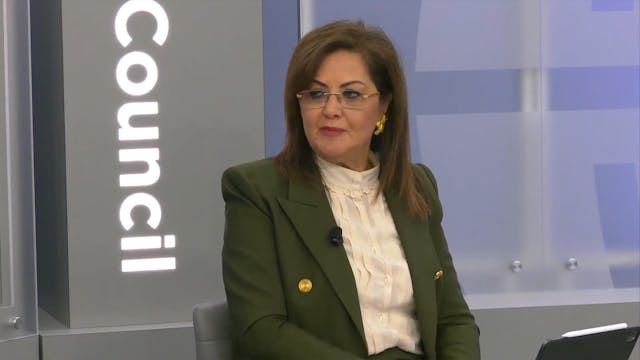Left behind: Legal and policy paths for Iran’s hostages
Rafik Hariri Center and Middle East Programs
•
1h 59m
LEFT BEHIND: LEGAL AND POLICY PATHS FOR IRAN’S HOSTAGES - The Atlantic Council’s Rafik Hariri Center & Middle East Programs hosted a hybrid panel discussion about wrongful detention in the Islamic Republic of Iran, how the United States and Europe handle such cases, and the impact that they have on current and former hostages as well as their families. The conversation featured US officials, legal experts, and families of current and former detainees, and former hostages. This event was held via Zoom and in-person on Tuesday, July 12, 2022 at 9:00 AM ET.
State-sponsored hostage-taking is a global problem, yet its prevalence in the Islamic Republic of Iran specifically demands greater attention. Especially given the political rationale commonly behind these detentions, many hostages are not being held for crimes committed, but for political conditions for which they bear no responsibility. Iranian hostages—many of whom are kept in poor detention conditions, denied legal counsel, and subjected to mental and physical torture—usually have no connection to the charges made against them. The United States has undergone several changes to its hostage policy in recent years, and the United Kingdom and other European countries are exploring changes, but further discussion is necessary to determine the best way forward for prevention and accountability strategies.
ORIGINAL AIRDATE: 07/12/22
Up Next in Rafik Hariri Center and Middle East Programs
-
A surge in crackdowns across Iran
A SURGE IN CRACKDOWNS ACROSS IRAN - The Atlantic Council’s Middle East Programs and Human Rights Activists’ (in Iran) hosted a discussion about the surge in crackdowns across Iran.
Just over a year into Ebrahim Raisi’s presidency, the human rights situation in the Islamic Republic standed grimm... -
Planning and Economic Development Min...
PLANNING AND ECONOMIC DEVELOPMENT MINISTER OF EGYPT H.E. HALA H. ELSAID - In recent years, Egypt made significant progress with macroeconomic reforms, which helped strengthen growth, reduce unemployment, increase foreign exchange reserves, and put public debt on a downward path. The Egyptian gove...
-
Finance Minister of Jordan Mohamad Al...
A CONVERSATION WITH THE FINANCE MINISTER OF JORDAN H.E. MOHAMAD AL-ISSISS - The World Bank recently announced that Jordan’s economy is projected to grow by 2.1 percent; however, the country must still address certain economic challenges, including attracting more investment to spur job creation a...



